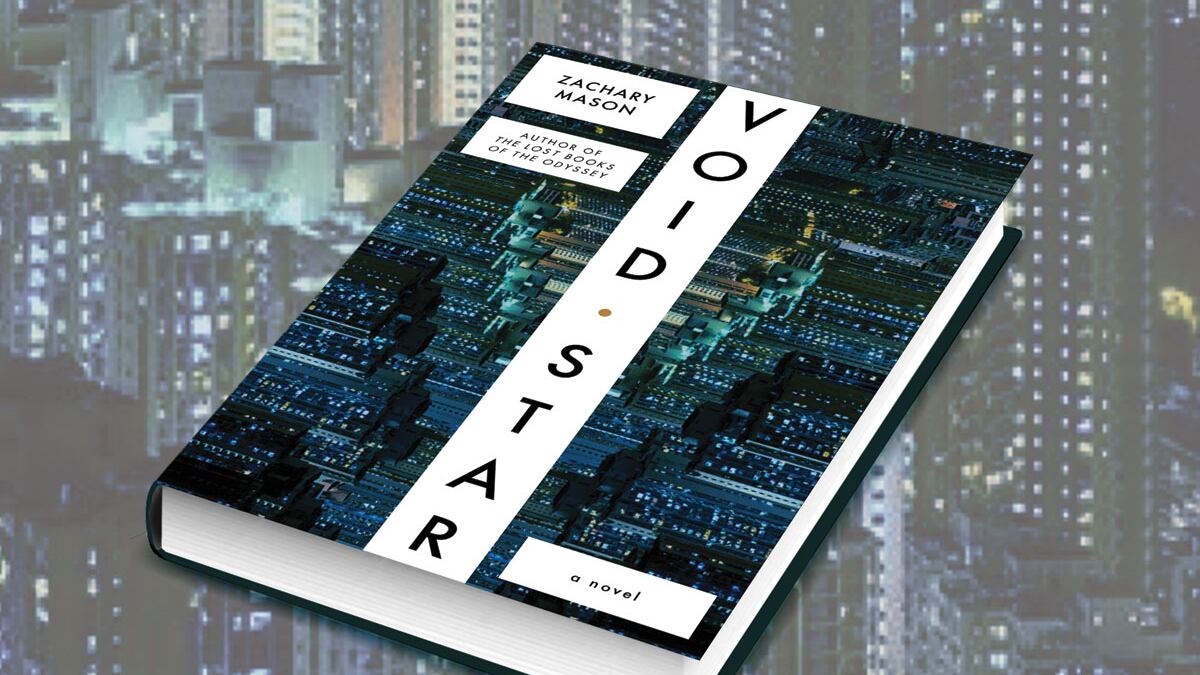Zachary Mason writes science fiction the way Proust writes romance—almost clinically all-seeing, but drunk with detail. If his first novel, The Lost Books of the Odyssey, was a Borgesian rabbit hole of fragmented history, his new Void Star (Farrar, Straus and Giroux, 400 pages, $27) is a future world peeling back its layers like an endless onion, leaving the reader dizzy and a bit bleary-eyed.
The 22nd-century San Francisco that Mason describes is maybe a bit like the one of today: The rich are terrifyingly rich, all is surveilled by the impersonal eye of drones and bots, and everybody poor is fucked. But now the oceans have risen, most of the rest of the world is crumbled slum, and AI has become a complex nest of minds within civilization's hive—communicated with only by people like Irina, whose implant gives her perfect recall and also lets her penetrate the alien landscapes of digital intelligence. She, like others with the implant, is being hunted by a rogue and powerful AI.
Landing somewhere between William Gibson and Ghost in the Shell, the world of Void Star—a term in computer programming that points to an undefined location in memory—is obsessed with the slipperiness of reality when recall is perfect, and on intelligence much more foreign than Russian. Mason, a computer programmer, told Wired in a recent interview that since age 7 he has had dreams of teaching computers to talk.
Mason's language in describing the half-cyberpunk wreckage of the world is rich and propulsive: "There's nothing on the coast but the hotel's ruin, though the tsunamis are ten years past. The shoreline must have changed when the water came, because now the waves break on the hotel's west wing."
But the multiple main characters are less fleshed out. From Irina to a street-punk odd-jobber named Kern and a Brazilian victim of an assassination attempt, all seem to speak in aphorisms or film-noir staccato, a little bit wry but always on the nose.
"There's no going back," one says. "Is life worth so little that you're in a hurry to leave it?"
"Life is worth so much that I'm in a hurry to leave it."
Oh, man. Perhaps tellingly, the most compelling voice in Void Star comes from a ghost in the machine, a human consciousness trapped inside an AI whose voice is florid and unbroken and mournful: "I'd expected the anesthesia to be like nothing but the surgeon said there'd be dreams."
But then, humanity is not quite what you're here for. Mason's novel instead contains the awestruck wonder of a world too large and layered to be understood except in memory, and as ruins.
GO: Zachary Mason reads at Powell's City of Books, 1005 W Burnside St., powells.com, on Wednesday, April 26. 7 pm. Free.

